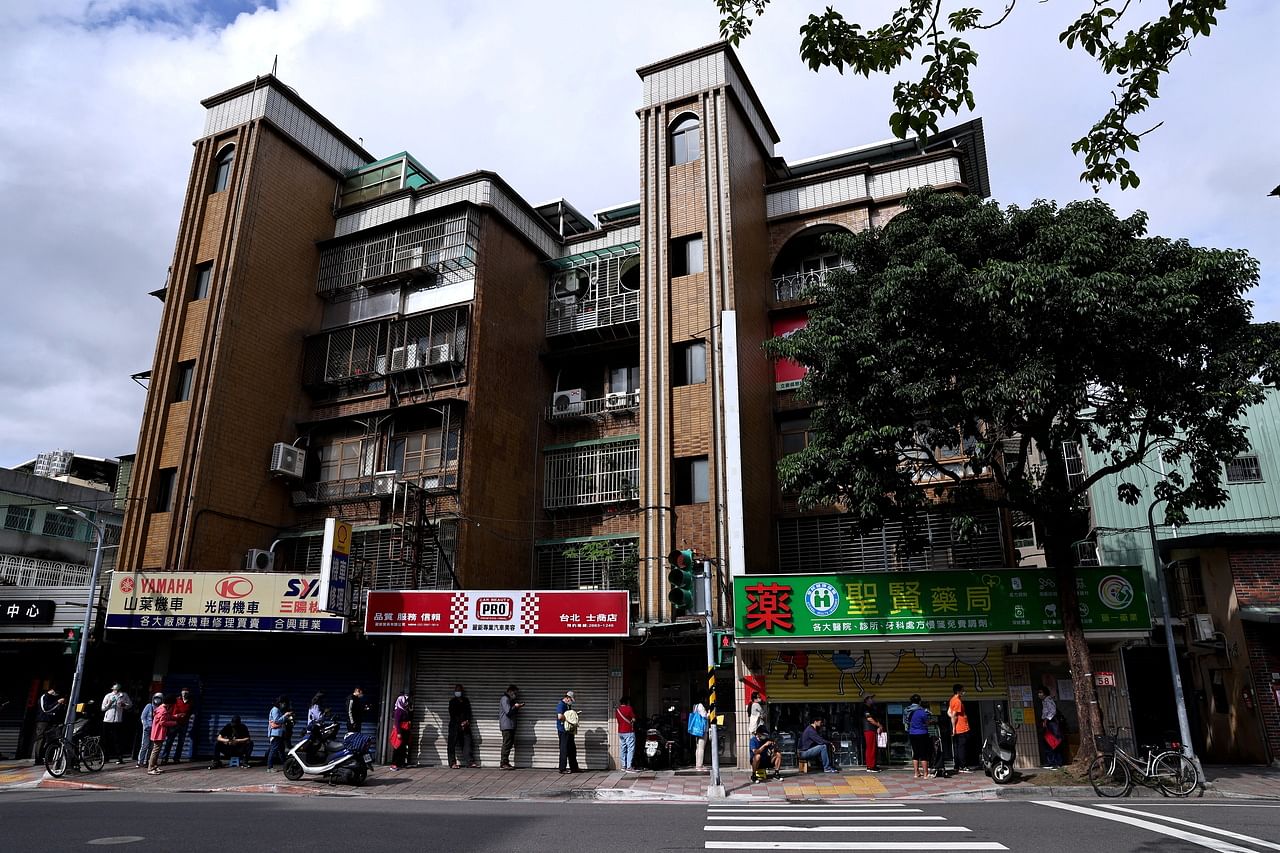Taiwan relaxes self-isolation guidelines for close contacts of Covid-19 cases
Sign up now: Get insights on Asia's fast-moving developments

The new rule is a part of the ongoing changes Taiwan is implementing to coexist with the virus.
PHOTO: REUTERS
Katherine Wei
Follow topic:
TAIPEI - From Tuesday (May 17), people in Taiwan who live with those who have tested positive for Covid-19 are allowed to skip self-isolation if they have already received the booster vaccine shot.
Under the new "0+7 plan", they will assume seven days of "self-initiated epidemic prevention" during which they can leave the house if they test negative in a rapid antigen test taken within the past two days.
Taiwan's Central Epidemic Command Centre (CECC) said on Monday that the change was made to ensure that medical resources remain available for patients displaying more severe symptoms.
Those who have not had their booster jabs or are unvaccinated will still have to self-isolate for three days, followed by four days of self-health monitoring.
More than 80.8 per cent of Taiwan's population have had two vaccine doses, while 63 per cent have received their booster shots.
From Monday, those 65 and above and immunocompromised people over 18 can receive a second booster vaccine shot if at least five months have lapsed since their first booster.
This is to reduce moderate and severe infections amid the outbreak, said Health Minister Chen Shih-chung on Monday.
The new rule is part of ongoing changes Taiwan is implementing to coexist with the virus, even as the health authorities continue to deal with the island's most severe outbreak yet.
Cases have surged dramatically since April due to the Omicron variant, with 65,794 cases and 38 deaths reported on Tuesday.
As more than 99.7 per cent of the cases this year have been asymptomatic or experienced mild symptoms, the health authorities have been gradually relaxing Covid-19 guidelines so people can still go about their daily activities.
Most schools remain open for in-person classes unless positive cases are reported, and restaurants, gyms and other businesses are in operation as usual.
On Tuesday, the Taiwan navy reported a Covid-19 outbreak on a second warship, after announcing on Monday that crew members of a frigate had tested positive.
Both ships have been ordered to return to base and those with a positive polymerase chain reaction (PCR) test result will go into quarantine.
The navy declined to comment on how many personnel were on board or the number of people who tested positive.
The Covid-19 surge also made it necessary for Taiwan to begin opening drive-through testing sites, with three currently in service in Taipei City and a fourth set to open soon.
The newest drive-through began operation on Tuesday at the National Chiang Kai-shek Memorial Hall and was swamped by cars waiting even before its 8am opening.

<p>People line up to get a coronavirus disease (COVID-19) test at a newly set up drive-through site at Liberty Square in Taipei, Taiwan, May 17, 2022. REUTERS/Ann Wang</p>
PHOTO: X06716
To keep medical resources focused on patients with more severe symptoms, those who have milder symptoms and are quarantining at home are encouraged to book virtual medical consultations should they need a diagnosis, have questions for a physician or wish to get a prescription for medication.
Starting May 12, people who have tested positive on a rapid test have to make a report with the CECC via its hotline or the government's healthcare app. This has led to doubts about whether the official numbers are accurate, as some people may not report their test results.
Financial adviser Chen Wan-lynn, 33, said this happened in her family.
"My grandma had a fever for days, and later my cousin, who lives with her, began to grow feverish too. Both soon tested positive, but nobody in that household reported this to the government," said Ms Chen.
Since the pandemic began in early 2020, Taiwan has recorded 896,059 Covid-19 cases, with 883,704 being domestically transmitted infections, and a total of 1,135 deaths.

